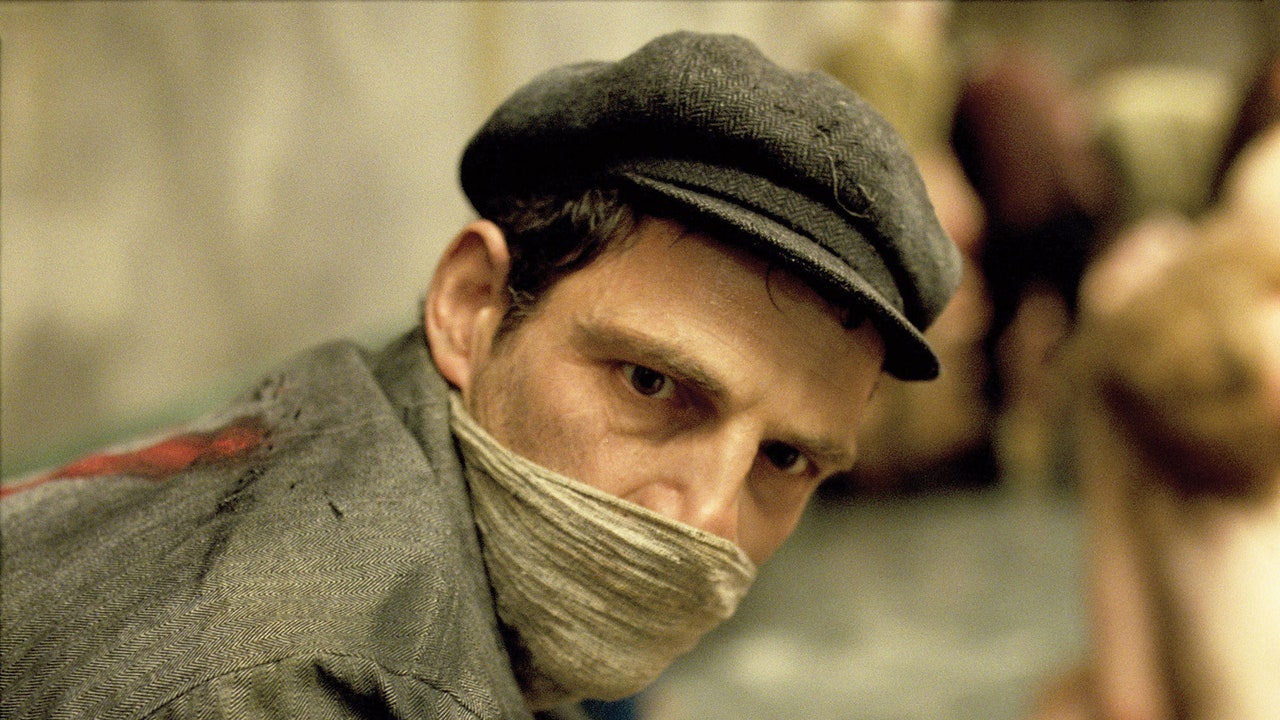
Great tragedies of the world often spark great films, which become all the more poignant and distressing when you know the events are true. As one of the most tragic events in human history, the Holocaust has inspired a host of cinematic depictions and for good reason: There is a need to preserve the memory of such horrors for future generations both for general educational purposes and as solemn warnings of man’s capacity for evil.
As demonstrated by their subject matter, no film on this list is made for casual viewing. Their seriousness is also revealed by their countless accolades. Only considering Academy Awards, the following films include one winner and one nominee for Best Picture, two winners and two nominees for Best International Film, and one nominee for Best Documentary Feature.
Every entry here – from documentary to true fiction to fictionalized drama – brings something different to the discussion of the Holocaust, and although they range in length (from thirty minutes to ten hours), any pick from the following easily deserves to jump to the top of your watchlist.
10. Divided We Fall (2000, Jan Hřebejk)
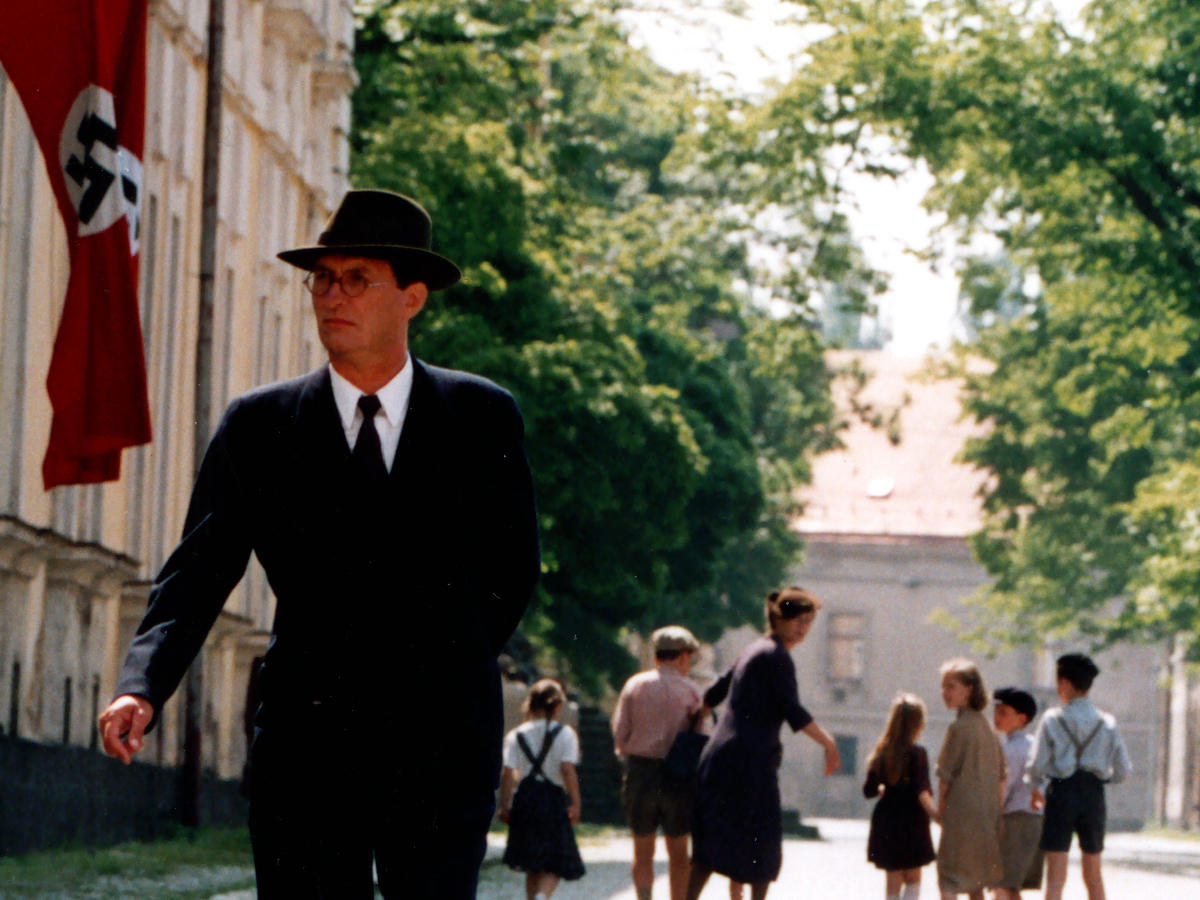
Adapted from the novel of the same title, Divided We Fall manages to capture what most mainstream depictions of the Holocaust fail to convey: the moral gray area of human character. Perhaps for ease of consumption or story simplicity, many modern films label characters as either perpetrators, victims, or bystanders. In Divided We Fall, however, characters fluctuate among these labels, and some even occupy multiple simultaneously.
By doing so, the film explores the psychology behind individuals’ thinking when confronted with such a horrific and widespread genocide, and it demonstrates how good and evil can coincide in the most ordinary of ways. The film lives in this moral gray area, as best seen by the unheroic nature of the film’s hero, Josef, and the wavering ethics of the whole ensemble of characters as the childless couple, Josef and Marie, “adopt” a young, Jewish man who recently escaped from a concentration camp.
Czech director Jan Hřebejk’s film also features what is arguably heavy-handed symbolism, particularly with Judeo-Christian motifs. A prime example of such overt imagery comes from the names of the main couple, Josef and Marie, a variation of Joseph and Mary, and their “miracle” baby, who acts as a catalyst for the moral lesson of the film. Divided We Fall’s ending urges for a growing understanding of forgiveness and reconciliation for both post-Holocaust east-central Europe as well as modern Czech Republic.
While the Divided We Fall’s symbolism and parable-like ending may appear too direct, they are well earned by the film’s deeply complex, utterly human characters and the casts’ wonderfully subtle performances, especially Anna Šišková’s portrayal of Marie which earned her a Lion award for best actress.
9. The Counterfeiters (2007, Stefan Ruzowitzky)
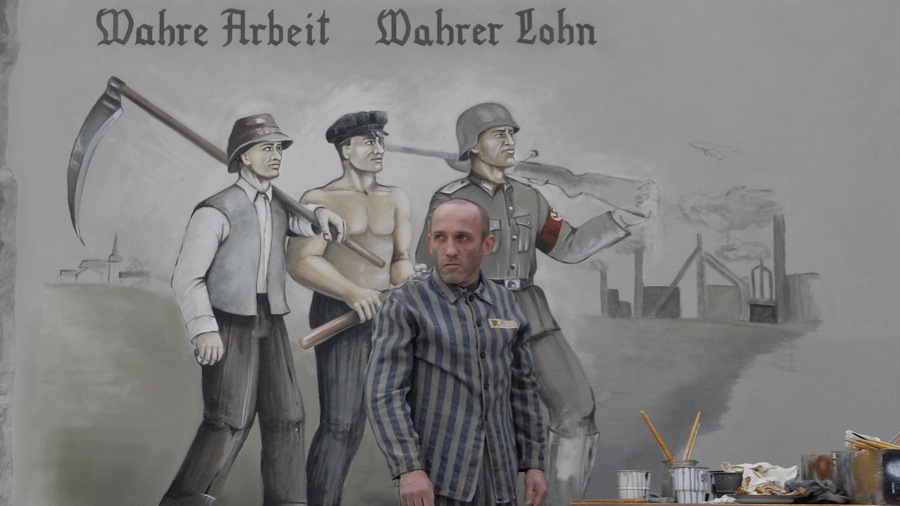
Another nuanced film that delves into the banality of evil, Hungarian writer and director Ruzowitzky’s The Counterfeiters focuses on a lesser known component of the Holocaust: Operation Bernhard, a Nazi plan originally aimed at forging British bank notes to collapse the United Kingdom’s economy. It was later revised to focus on forging money to finance German operations.
In the film, Salomon ‘Sally’ Sorowitsch, a famed Jewish counterfeiter and Nazi prisoner, is forced into leading Operation Bernhard’s team at the Sachsenhausen concentration camp. American audiences may recognize actor August Diehl, who plays fellow counterfeiter and staunch Communist Adolf Burger, from Quentin Tarantino’s Inglourious Basterds or, more recently, Terrence Malick’s World War II movie, A Hidden Life. Interestingly, The Counterfeiters is based on the real Burger’s memoirs of working in Sachsenhausen.
It is Karl Markovics’s performance as Sally, however, that captivates the audience and provides a more complex look into the internal moral struggles of the prisoners. The relatively “cushy” living conditions of the Operation Bernhard counterfeiters compared to the rest of those trapped in the concentration camp begs the question whether it is morally acceptable – or at least permissible – to aid the Nazi’s efforts in order to increase the chances of survival. It is primarily Burger who raises these concerns, but it is Sally, as the film’s focus and the team’s leader, who is ultimately left to deal with them.
While the film occasionally risks making the Holocaust appear as a backdrop to the counterfeiting operation, Ruzowitzky successfully provides a look into the dehumanizing environment of the camps and raises a handful of seemingly unanswerable questions about the ethics of survival.
8. Son of Saul (2015, László Nemes)
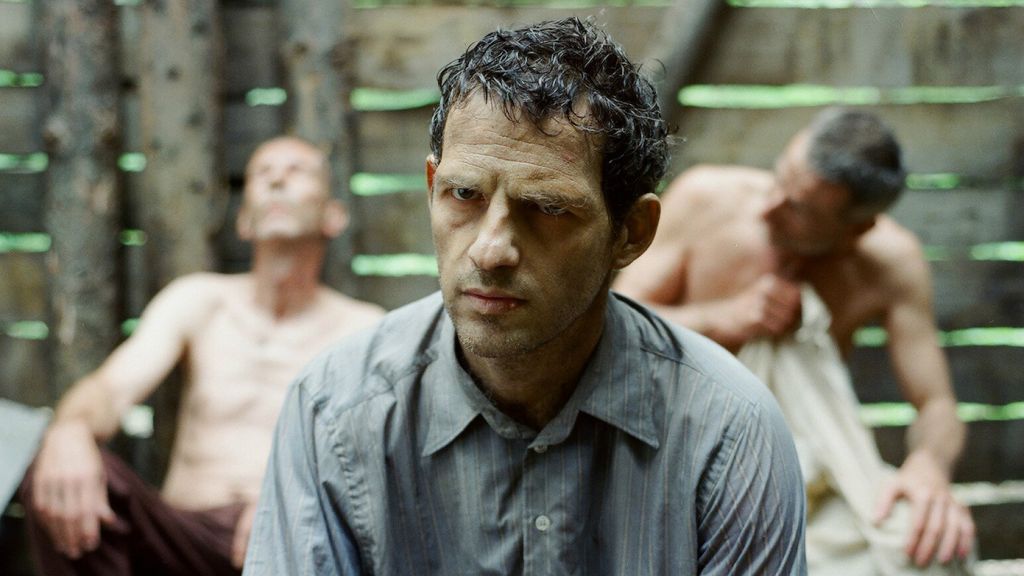
The masterful debut feature film of Hungarian director László Nemes, Son of Saul, follows a day-and-a-half of the life of Saul Ausländer, a Hungarian Sonderkommando in the Auschwitz II-Birkenau death camp in 1944. Released in 2015, Son of Saul’s fictionalized story successfully reopens the cinematic discussion of the Holocaust by addressing the subject with the utmost seriousness and a lack of the melodramatic.
A prospective viewer can gain great insight into the moral weight the film carries by understanding the nature of the Sonderkommando, a group of prisoners offered some “privileges” in exchange for the hellish job of aiding in the extermination of their own people in the camp’s gas chambers. In fact, Nemes immediately forces the audience into experiencing this hell by opening the film with Saul at the gas chamber discovering the burnt body of a young child.
Throughout the movie, Nemes remains on extreme close-ups of the characters and often utilizes a whispered, hushed tone in the dialogue to create a sense of intimacy and urgency. Such techniques allow the viewer to identify with Saul and experience the horrors that rush all around him, sometimes without even seeing them visually on the screen.
Although full of the greatest evils man can think of, Son of Saul still manages to provide an image of humanity as Saul attempts to find meaning in such an unthinkable place.
7. Night and Fog (1956, Alain Resnais)
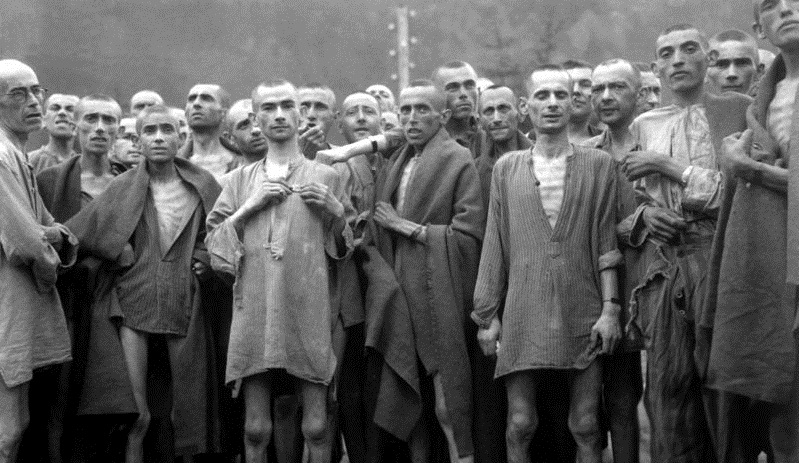
Only thirty-two minutes long, this French documentary examines the Holocaust against the backdrop of the abandoned concentration camps of Auschwitz and Majdanek. Night and Fog earns a spot on this list not only because Resnais made it only ten years after the liberation of the Nazi camps, but more importantly because it avoids the subjectivity that many Hollywood, fictionalized depictions of the Holocaust portray.
Juxtaposing colorized images of what now seem like utterly ordinary locations against stills and archival footage of the acts witnessed in such camps, Resnais explores the history and memory of the Holocaust with great objectivity. This juxtaposition also serves to suggest that horrors of similar magnitude may just as easily occur again in the most average of places.
As one of the first cinematic representations of the Holocaust, Night and Fog remains an influential exploration of the evils witnessed in the 20th century and a chilling warning for the future.
6. Schindler’s List (1993, Steven Spielberg)
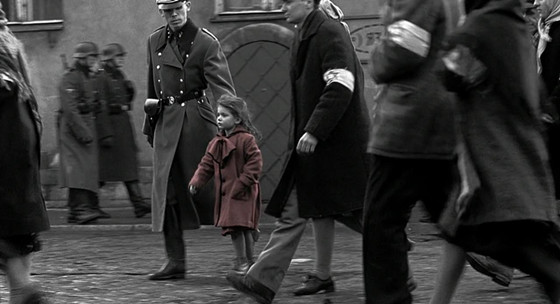
Undoubtedly the most widely known and most mainstream movie on this list, Schindler’s List may seem out of place among such an internationally-focused collection of films, but its position here is rightly deserved. The film adapts Thomas Keneally’s Booker Prize winning novel for the screen and depicts the true story of German businessman Oskar Schindler, who ultimately saved more than a thousand Jewish refugees from certain death in the concentration camps.
While Schindler’s List received certain criticisms for its classic Hollywood romanticization of the Holocaust and its occasionally unbalanced focus on the two physically domineering Nazi leads as opposed to the Jewish victims, the film exhibits some modesty and is one of Spielberg’s most serious and intimate movies to date. There is also no denying the visual mastery of the film set to a beautifully poignant score by John Williams, the captivating performances by the cast, particularly the subtle portrayal of Jewish accountant Itzhak Stern by Ben Kingsley, and the artful directorial choices, most notably the black-and-white color scheme that is only interrupted by brief glimpses of the famous girl in the red dress.
Although Schindler’s List arguably puts its characters into more defined categories of good and evil compared to some of the other films on this list, the film’s characterizations of Schindler and Nazi commandant Goeth deserve more merit than criticism. The film draws telling parallels between the two characters, who seemingly have similar womanizing, profiteering personalities and social statuses as members of the Nazi party, yet they grow to have undisputedly distinct roles in the Holocaust, one as a “savior” and the other as an exterminator.
The characterization of Schindler, in particular, proves most captivating, as his selfish ambitions to make money end up saving innocent lives and subsequently challenge his own psychology and ethical understanding of the genocide unfolding in front of him. Spielberg achieves this with great moral intelligence, which compels reflection in every viewer.
There is no question why the film remains as one of the most well known dramatizations of the Holocaust and a must see introductory film into the cinematic depictions of such a horrific event in history.